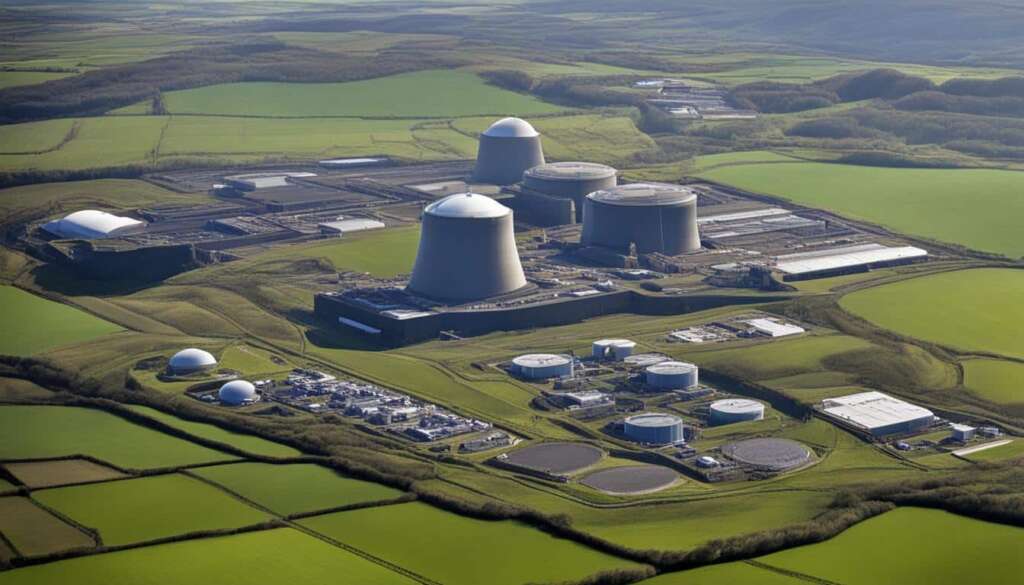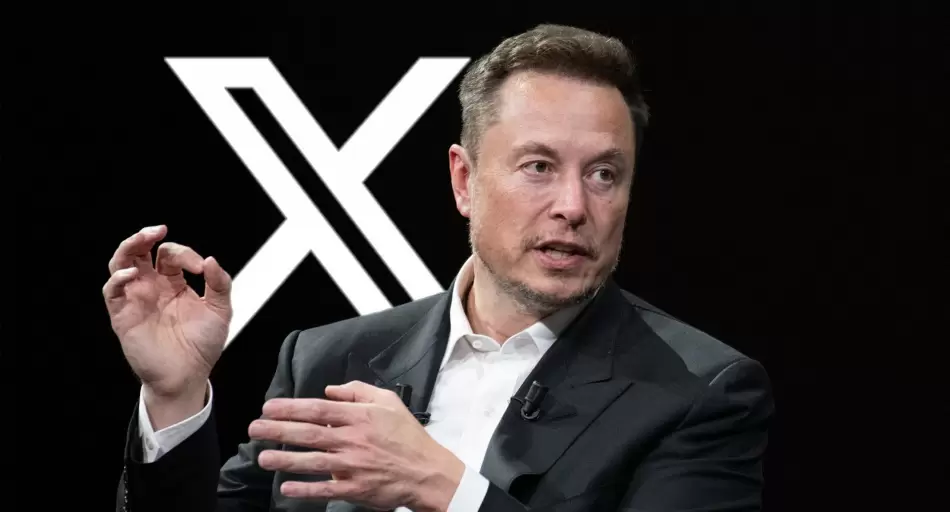Table of Contents
A U.S. appeals court has delivered a major victory for Intel Corporation by overturning a $2.18 billion patent-infringement award in favor of VLSI Technology. This landmark decision marks a significant reversal in one of the largest verdicts in the history of U.S. patent law.
The appeals court ruled that there was insufficient evidence to support the jury’s verdict that Intel infringed on one of the patents in question. As a result, the case has been sent back to Texas for a new trial to determine the damages owed by Intel for infringing a second VLSI patent.
Background of the Case
VLSI Technology, a patent holding company owned by Fortress Investment Group, filed a lawsuit against Intel Corp for patent infringement in multiple U.S. courts. In the initial trial held in Waco, Texas, a jury awarded VLSI a staggering $2.18 billion in damages, ruling that Intel’s microprocessors had infringed on patents acquired by VLSI from NXP Semiconductors. This verdict was recently overturned by a U.S. appeals court, citing insufficient evidence for one of the patents. However, the court affirmed the infringement of a second VLSI patent, leading to the case being sent back to Texas for a new trial to determine the damages owed by Intel.
This legal battle between VLSI Technology and Intel Corp represents one of the largest verdicts in the history of U.S. patent law. The decision by the appeals court has significant implications for both companies and the semiconductor industry as a whole. With the initial verdict being invalidated, the damages owed by Intel will need to be reevaluated in the upcoming trial. This ruling also sets a precedent for future patent disputes, defining the level of evidence required to prove infringement and the determination of damages in such cases.
Previous Trials
This isn’t the first time Intel and VLSI Technology have faced each other in the courtroom. In a Waco trial last year, Intel successfully defended against VLSI’s claim for over $3 billion in damages. In a separate trial in Austin, Texas, VLSI was awarded nearly $949 million from Intel in another patent infringement case. The two companies have also dismissed a potential multi-billion-dollar case in Delaware. These previous trials provide additional context for the ongoing legal battles between Intel and VLSI Technology, showcasing the complexity and high-stakes nature of patent litigation in the semiconductor industry.
Repercussions for Intel and the Semiconductor Industry
Following the appeals court decision to overturn the $2.18 billion patent-infringement verdict against Intel, the company experienced a significant decline in stock value. Investors reacted swiftly to the news, resulting in a more than 4% drop in Intel’s stock. This financial impact highlights the significance of the case for Intel and the broader semiconductor industry.
The ruling not only affects Intel’s financial position but also sets a precedent for future patent disputes within the semiconductor industry. The determination of damages in such cases is now under scrutiny, potentially impacting the outcomes of similar litigations in the future. The result of the new trial in Texas will play a crucial role in shaping the future of patent litigation within the industry.
Moreover, the outcome of this case could have ripple effects on other chipmakers and companies involved in patent disputes. The legal landscape of the semiconductor industry may undergo significant changes as a result of this appeals court decision. Companies will need to reassess their approach to patent protection and infringement to mitigate potential risks and uncertainties.
| Repercussions for Intel and the Semiconductor Industry | Key Takeaways |
|---|---|
| The overturning of the $2.18 billion patent-infringement verdict resulted in a more than 4% decline in Intel’s stock. | This financial impact demonstrates the significance of the case for Intel and the semiconductor industry. |
| The ruling sets a precedent for future patent disputes within the industry, potentially impacting the determination of damages. | The outcome of the new trial in Texas will shape the future of patent litigation. |
| The case has broader implications for other chipmakers and companies involved in patent disputes. | Companies will need to reassess their approach to patent protection and infringement. |
Legal implications and future trials
The U.S. appeals court’s decision to send the case back to Texas for a new trial reflects concerns with the damages analysis in the previous trial. This opens up the possibility of a different outcome in terms of the damages owed by Intel to VLSI. It is worth noting that this is not the only ongoing legal battle between the two companies, as they have been involved in multiple patent cases across different jurisdictions. A trial in Northern California is scheduled to begin in 2024.
With the U.S. appeals court ordering a new trial, both Intel and VLSI will have the opportunity to present additional evidence and arguments to support their respective positions. This could lead to a reevaluation of the damages owed by Intel, potentially resulting in a higher or lower amount than the initial $2.18 billion verdict. The outcome of this new trial will greatly impact the financial standing of both companies and may set a precedent for future patent cases within the semiconductor industry.
The legal implications of this decision extend beyond just Intel and VLSI. The U.S. appeals court’s focus on the damages analysis highlights the importance of accurately assessing the economic value of patent infringement. This ruling may prompt other companies involved in patent litigation to reassess their damages calculations and strategies moving forward. It also serves as a reminder that the outcome of patent cases can be unpredictable, with the potential for significant financial consequences.
| U.S. appeals court decision | New trial in Texas | Impact on damages analysis |
|---|---|---|
| Overturns $2.18 billion patent-infringement award against Intel | Provides an opportunity for both parties to present additional evidence | Highlights the importance of accurately assessing damages in patent cases |
| Opens up the possibility of a different outcome in terms of damages owed | Potential for a higher or lower amount than the initial verdict | Prompts other companies involved in patent litigation to reassess their strategies |
| Impacts the financial standing of Intel and VLSI | Serves as a precedent for future patent cases in the semiconductor industry | Reminds companies of the unpredictability and financial consequences of patent litigation |
Investor Reactions and Market Impact
Investor reactions and market impact of the recent appeals court decision in the Intel vs. VLSI patent infringement case have been swift and significant. As news of the overturning of the $2.18 billion verdict spread, investment funds, including those managed by Fortress Investment Group, closely monitored the situation. The impact of the ruling was immediately reflected in the stock market, with Intel’s stock experiencing a decline of more than 4% in response to the news. This drop in stock value indicates the market’s reaction to the uncertainty surrounding the outcome of the case and its potential financial implications for Intel.
However, it’s not just Intel that felt the market impact. Other major chipmakers also experienced declines in their stock prices following the appeals court decision. This broader impact suggests that investors are recognizing the significance of the patent verdict on the semiconductor industry as a whole. With the case set to proceed to a new trial to determine damages, investors and market analysts will continue to closely monitor developments and adjust their investment strategies accordingly.
“The appeals court decision has introduced a level of uncertainty into the market, particularly for semiconductor companies. The possibility of a new trial and the potential for revised damages creates a sense of instability that can impact investor confidence.” – Investment Analyst
Table: Stock Performance of Major Chipmakers
| Company | Stock Performance |
|---|---|
| Intel | Declined more than 4% |
| AMD | Declined 3% |
| NVIDIA | Declined 2% |
| Qualcomm | Declined 1.5% |
The table above illustrates the stock performance of major chipmakers in response to the appeals court decision. The declines in stock prices for Intel, AMD, NVIDIA, and Qualcomm indicate the market’s reaction and the potential concern surrounding the outcome of the case. These trends highlight the interconnectedness of the semiconductor industry and how developments in one company’s legal battles can impact the entire sector.
Historical context and previous trials
This isn’t the first time Intel and VLSI Technology have faced off in the courtroom. In a Waco jury trial in 2021, Intel successfully defeated VLSI’s bid for over $3 billion in damages. In a separate trial in Austin, Texas, VLSI was awarded nearly $949 million from Intel in another patent case. The companies also agreed to dismiss a potential multi-billion-dollar case in Delaware. These previous trials provide additional context for the ongoing legal battles between the two parties.
| Location | Outcome | Damages Awarded |
|---|---|---|
| Waco, Texas | Intel wins | $0 |
| Austin, Texas | VLSI wins | $949 million |
| Delaware | Case dismissed | N/A |
These previous trials showcase the complex and contentious relationship between Intel and VLSI Technology when it comes to patent litigation. While Intel emerged victorious in the Waco trial, they were forced to pay a significant sum to VLSI in the Austin case. The dismissal of the potential multi-billion-dollar case in Delaware raises questions about the nature of the disputes and the strategies employed by both parties.
As the legal battles continue, the outcomes of these previous trials serve as important reference points for both Intel and VLSI Technology. They highlight the unpredictability of patent litigation and the potential for significant financial consequences. The ongoing disputes between these two industry giants are not only shaping their own future but also influencing the broader landscape of patent law.
Conclusion
The U.S. appeals court’s decision to overturn the $2.18 billion patent-infringement award against Intel has sent shockwaves through the ongoing legal battle with VLSI Technology. This unexpected twist in the case means that Intel will now face a new trial to determine the damages owed for infringing the second VLSI patent. The implications of this ruling extend beyond the two companies involved, impacting the entire semiconductor industry and setting a precedent for future patent litigation.
The market reacted swiftly to the news, with Intel’s stock experiencing a sharp decline of over 4%. This not only reflects the financial implications for Intel but also highlights the wider market impact of this patent verdict. Furthermore, the decision to send the case back to Texas for a new trial raises important legal questions regarding the analysis of damages in patent cases.
As the legal battle continues between Intel and VLSI Technology, it is clear that their history of litigation is far from over. With multiple previous trials and ongoing disputes across different jurisdictions, the outcomes of future trials will shape the relationship between these two industry giants. All eyes will be on the upcoming trial in 2024 in Northern California to see how the saga unfolds.
FAQ
What was the outcome of the appeal in the VLSI vs. Intel patent infringement case?
The U.S. appeals court invalidated the $2.18 billion patent-infringement award that VLSI had won against Intel, reversing one of the largest verdicts in U.S. patent law history.
Why was the verdict overturned?
The appeals court ruled that there was insufficient evidence to support the jury’s verdict that Intel infringed one of the patents in question.
What happens next in the case?
The case has been sent back to Texas for a new trial to determine the damages owed by Intel for infringing a second VLSI patent.
How did the market react to the appeals court decision?
Intel’s stock fell by more than 4% on the day of the ruling, and other major chipmakers also experienced declines.
What are the broader implications of this ruling for the semiconductor industry?
This ruling sets a precedent for patent disputes and the determination of damages in the semiconductor industry.
Are there any other ongoing legal battles between Intel and VLSI?
Yes, the two companies have been involved in multiple patent cases across different jurisdictions, and a trial in Northern California is scheduled to begin in 2024.
What is the historical context of the legal battles between Intel and VLSI?
In previous trials, Intel successfully defeated VLSI’s bid for over $3 billion in damages, while VLSI was awarded nearly $949 million from Intel in another patent case. The companies also agreed to dismiss a potential multi-billion-dollar case in Delaware.













